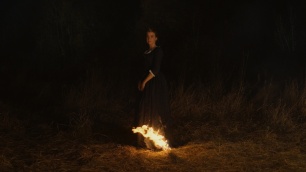28/03/20
Since new cinema releases are hard to come by, we’ve decided to take a fresh look at some old favourites and reappraise them through a contemporary lens. Are they still as good as we thought they were? First out of the (DVD) box is Midnight Run (1988), directed by Martin Brest.
I first saw this film on its cinematic release (so in Manchester, I guess) and I went to it with no real expectations. Brest was, at that time, best known for his work on Beverly Hills Cop, a big-hitting feature for Eddie Murphy, and I pretty much thought it would be just another genre piece. But it’s much more than that, largely because of the wonderful chemistry between Robert De Niro and Charles Grodin, which turns this comedy crime caper into what used be known as a ‘buddy movie.’
De Niro plays Jack Walsh, former cop turned bounty hunter, working for bails bondsman, Eddie Moscone (Joe Pantoliano.) Moscone has recently put up the bail for accountant, Jonathan Mardukis (Grodin), who has stolen two million dollars from mafia big wig Jimmy Serrano (Denis Farina), money which he has promptly donated to charity. Serrano is eager to have his revenge and, meanwhile, the FBI, led by Agent Alonzo Mosely (Yapphet Kotto), are also very interested in talking to Mardukis. Can Walsh find his quarry and bring him in for trial before violent retribution catches up with him?
Of course, Midnight Run has all the genre tropes you’d expect from a film like this – hair raising shoot-outs, extended car chases and bruising punch ups – but it’s in the developing relationship between Walsh and Mardukis that the film really shines. This, of course, features De Niro when he was still at the top of his game, able to convey so much with just a look and a shrug. Watch the heart-wrenching scene where Walsh is suddenly confronted by the teenage daughter he hasn’t seen in nine years and you are witnessing a masterclass in understatement. Grodin, meanwhile, plays his polar opposite, a calm and relaxed character, somehow nurturing despite his invidious position as the man who everybody wants to kill.
The witty screenplay by George Gallo fairly bristles with memorable one liners (I’m delighted to find that I can still remember most of them after all these years) and there’s also a hilarious turn from John Aston as dim-witted rival bounty hunter, Marvin Dorfler. The extended running ‘punch’ gag between him and Walsh is perfectly played throughout.
What seems particularly weird when viewing this from a contemporary perspective is all that gratuitous smoking – characters enjoy cigarettes on planes, trains, in offices, on the subway… just about everywhere you can think of. And of course, there are no mobile phones, so there are countless scenes of people talking from phone booths or running into bars just in time to pick up a receiver.
But these idiosyncrasies aside, Midnight Run stands time’s acid test. It’s still hugely enjoyable. Martin Brest had a few more successes waiting for him down the line, not least guiding Al Pacino to his Oscar win for Scent of a Woman in 1992, but this remains his most satisfying piece of work, the perfect choice for a locked-down life.
4.6 stars
Philip Caveney




























